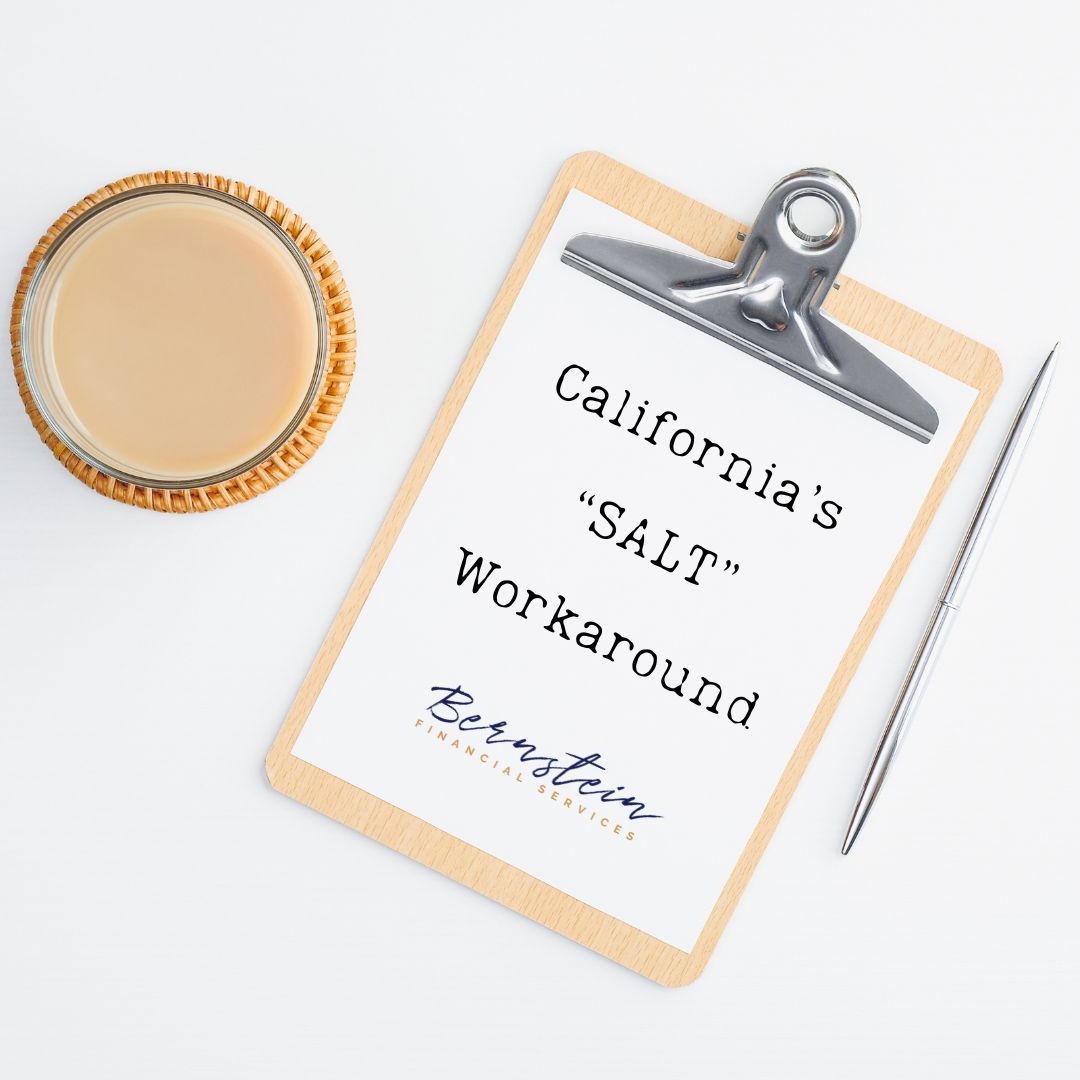Do you own a pass-through entity in California, such as an S-Corp or Partnership? You may be able to lower your federal tax by using the relatively new state and local tax (SALT) Workaround.
How Tax Cut and Jobs Act Impacted Your Taxes
First, a little background. The Tax Cut and Jobs Act (TCJA) of 2017 put a $10,000 cap on the state and local tax deduction that you can take on your federal tax return through 2025. In California, legislators sought to lessen the burden on business owners when it passed a measure called AB 150, known as the “SALT workaround” for state and local tax relief.
By paying your personal state tax through your pass-through entity, you can achieve a federal tax deduction, where the deduction would have likely been limited on the individual return. You can cut your personal federal tax liability with this money-saving strategy, which allows you to pay income tax at the entity level. Using the SALT workaround, you can deduct this tax on your federal entity level return. Doing so will lower your taxable income at the individual level. That way, you can save on your federal tax.
HOW THE STATE AND LOCAL TAX WORKAROUND WORKS
Imagine your pass-through entity has a $200,000 profit and that your state and local tax obligation on that money is roughly $20,000. Using the state and local tax SALT workaround to pay that tax obligation by your business at the entity level, you would save about $5,000 depending on your federal tax rate. Has your current tax preparer talked to you about using the SALT workaround to save money? This PTE strategy is elective, meaning you can choose to pay this tax. The elective tax rate on your pass-through entity income is 9.3% of qualified business income. If your business has several owners or partners, you can elect to pay that rate on each owner’s share of the business income that is subject to California’s personal income tax. There are some potential pitfalls and complications to using this strategy.
- Some owners may not want to participate because they don’t want to manage the complexities of this new tax law.
- The SALT workaround creates a non-refundable credit. Once you elect to pay it, you can’t change your mind.
- Any unused state tax credit carries forward for the 5 years
- The SALT workaround is not available to publicly traded partnerships or an entity that is part of a California combined reporting group.
We highly recommend that you speak to a tax professional to determine if the elective state and local tax workaround is something that will benefit you and your pass-through entity business. We invite you to schedule an appointment with a Principal at Bernstein Financial Services. We can help you determine the optimal PTE tax strategy and help you with business and personal tax planning.
Bernstein Financial Services Inc. has guided business owners through the complexities of the tax code and improved their profit margins since 1989. This article is for educational purposes only and should not be taken for business advice about your specific situation. Schedule a consultation appointment with a Principal at Bernstein Financial Services to help you determine your optimal planning strategies.
